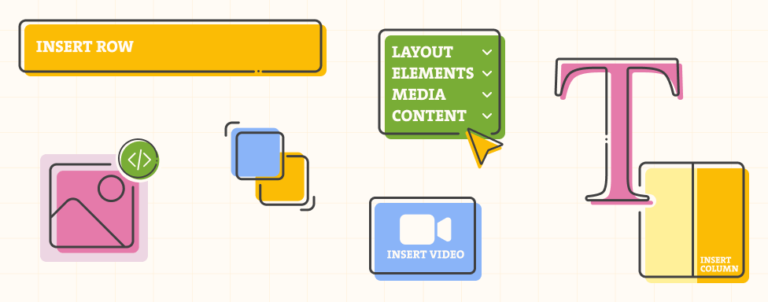Magento relies heavily on its network of Solution Partners. We are here to get our hands dirty and work with merchants on daily basis, helping them grow their businesses, share success stories and enable Magento to stay on top of the open source eCommerce game.
This is my take on the current Magento Solution Partner program, what works, what doesn’t and what are some of the main areas it should be improved on, based on our 5 years experience with the program.
I gave the speech on this topic in Poznan at Meet Magento Poland in October 2015 and below you’ll find the full deck of slides from the presentation. After the feedback I got in Poland and afterwards, I felt this should be shared a bit more, so here’s the gist of it.
I entitled my presentation Magento Solution Partner Program – The Good, The Bad and The Ugly because, well – that’s how many of us (solution partners) feel looking at how it has evolved over the five years we have been in the program, with our current status being a Silver Solution Partner.
Since you can see the entire presentation below, I will keep this post about main points I wanted to raise.
Magento 2 – a game changer
With the rollout of Magento 2 (and with everything leading up to it) we’ve seen several huge changes:
- Code got a full revamp
- Magento Connect also saw a big change introduced
- Licensing is moving away from the old model
With all those changes taking place, we have expected something to happen with the Solution Partner program. But, we haven’t heard anything happening around it. And why is this important? Why should anything be changed?
Simply – because there are things about the program that need to be changed and we (solution partners) have been raising most of these issues year in, year out.
So, what are the main issues with the way the program is set up right now? What works, what doesn’t and what’s screaming for change?
The Good
The good thing is that it allows both Magento and partners to work together and expand markets. It also allows partners to get access to a number of useful resources prepared by Magento themselves, upping the quality of our work.
And it allows partners to gain extra visibility and differentiate themselves in the eCommerce market by flashing a badge or two. Certification has improved the program and some of the initial issues were sorted out a couple of years back.
But, there are some issues with the program that have lingered for years.
The Bad
The bad (if we put it this way) is the sheer fact that Magento never made any distinction between a Solution and a Reseller Partner, and those two are very different. Solution would mean “integrator” in usual software terminology, while reseller – well, we all know what that stands for 🙂
It makes perfect sense from Magento’s perspective to use the network of companies around the world that are recognized in their communities as a leverage to extend the platform’s reach, and they have been doing a great job with that.
However, there are many high quality Magento companies that are great at what they do, and that’s delivering eCommerce solutions to their clients using Magento as the core of their systems. These companies may not have the sales capacities (or don’t want to build them), but with the way the program is set up, they can’t become partners (solution partners) without committing to certain revenue goals (which means licenses “sold”).
So, some of the possibly great solution partners can’t even be recognized as solution partners because they are not resellers – see the catch 22 there?
In addition to that, Magento doesn’t quite follow through with the whole revenue-based model setup. Granted, you may be entitled to a certain commission for a sale, but if you continue to enable revenue to Magento year in, year out (supporting an EE client for many years), you get nothing after the first year (not even revenue attribution, let alone commissions).
The Ugly
Which brings us straight to the worst thing we have experienced in the way the program is set up and administered.
Have you ever worked at a call center? Called one? Or received a cold call?
Well, you know how the best thing an agent can do with an unhappy customer looking to leave the service is to persuade them to stay, aka win them back? Those agents get the best bonuses.
Now, we have, as solution partners, been in a number of situations where we saved an EE client from a poorly developed site with bugs crawling all over the place (need we say quite a few of those installations were bloated with more than 100 extensions installed?!?). Some of those clients were at the brink of leaving Magento. We said: “Ok, challenge accepted.”, rolled up our sleeves, got to work and we are still working with some of those, now happy EE clients.
What did we get in return from Magento? In some cases – a pat on the back. Such clients don’t qualify for our revenue goal achievement, even though our work has directly contributed to them continuing to be paying customers to Magento.
Did you see I’m not even talking about commissions here? That’s because we don’t really care about them. We care about being recognized for the work done and actual contribution to Magento’s bottom line.
So, I’m sure you see the problems here.
Ok, suggestions?
So, many solution partners (as you will see from survey results in the slides below) agree on the problems we have been raising for many years now. And we have come to Magento with various suggestions on how to rework the whole partner program.
There are many suggestions listed in the presentation, comments by some of my fellow solution partners included, but most of these revolve around the following:
- Rework the entire revenue goals and attribution model
- Make a clear distinction between a Solution and a Reseller Partner
- Recognize and acknowledge win-backs
- Prioritize quality – all the time
Any of these suggestions can be a blog post on their own, but I’m hoping to keep this discussion alive as I’ve gotten some really good feedback from many #RealMagento folks after my presentation in Poznan, and that’s the main reason for sharing this.
Now that Magento is back to being Magento, there should be no red tape preventing us to see some of these changes take place, and for the sake of everyone involved – Magento, partners and, most importantly, merchants.
The shape of things to come
I have a feeling that the next steps with the solution partner program will greatly depend on whether the licensing model as it is prepared will be rolled out in its current form or with some changes.
I would love to see Magento, when talking about and analyzing their solution partner success, focus more on this definition of a solution partner: Solution partners provide solutions that accelerate growth and profitability of your business.
This is actually taken from Magento’s website.
Perhaps we are still to see some modifications soon, but since we don’t have any information to suggest otherwise, let’s treat this as a push towards Magento to treat this as just another problem that, in our ecosystem and with our community, gets solved, right?
"There is no problem that community cannot solve." @benmarks #mn15ny pic.twitter.com/twNNQkrKwn
— Sherrie Rohde (@sherrierohde) September 21, 2015
You’ll find the presentation slides below and don’t forget to share your own thoughts about the partner program (it doesn’t have to be only solution partners taking part in the conversation, I’m sure hosting and technology partners will have a thing or two to add).
What changes would you like to see introduced to the Magento Solution Partner program?



